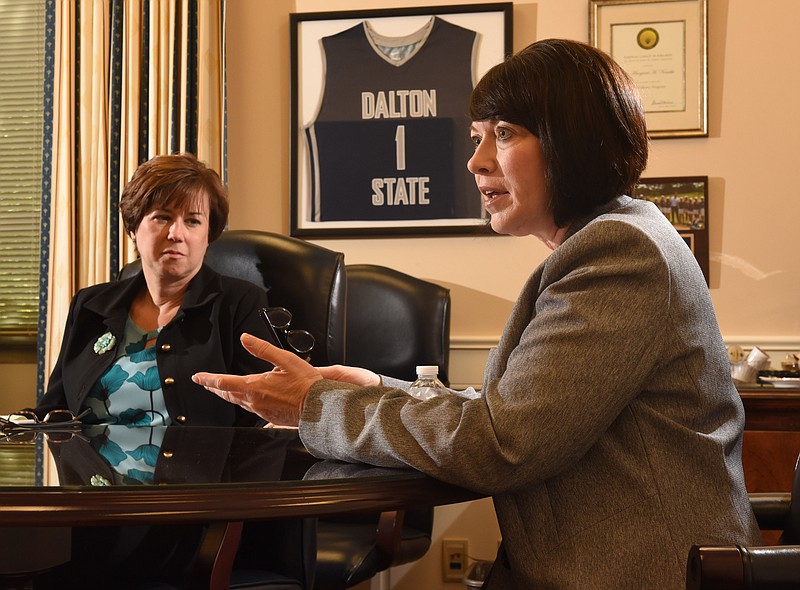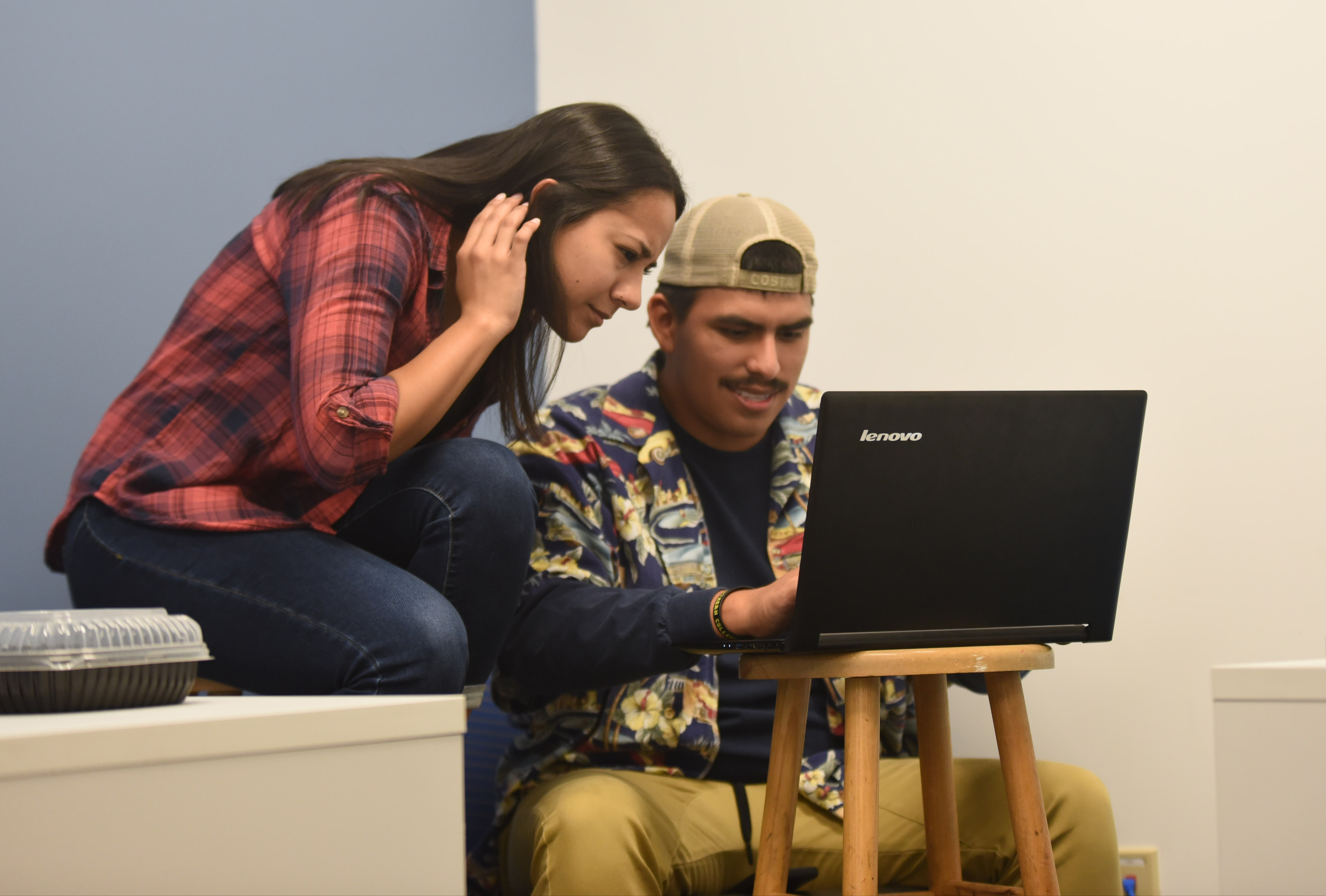History of Hispanic enrollment at Dalton State
2000 - 2.8% 2001 - 3.5% 2002 - 5% 2003 - 5.9% 2004 - 7.7% 2005 - 8.7% 2006 - 9.4% 2007 - 10.8% 2008 - 11.3% 2009 - 11.9% 2010 - 12.7% 2011 - 16.2% 2012 - 17.9% 2013 - 19.3% 2014 - 21.3% 2015 - 23.6% Source: Dalton State
DALTON, Ga. - When Kayla Almazan enrolled at Dalton State in fall 2010, she couldn't find an organized voice for Hispanic students such as herself.
The college had plenty of students with backgrounds like hers - she moved to Dalton from Mexico in middle school when her dad took a job at a carpet mill. But a loud, focused voice hadn't really developed among those students, she said.
Almazan, 24, considered starting an organization dedicated to Latino culture, like the one she heard about at Georgia Gwinnett College. Then she met Quincy Jenkins, hired as the college's director of Hispanic culture in 2013, and worked with him to create the Latin American Student Organization.
The group brought in speakers to tell students about the history of the Day of the Dead celebration, how Hispanic immigration shaped current U.S. schools and what the Georgia Association of Latino Elected Officials does. This didn't seem like a big deal on the surface - there are already plenty of smart adults talking to students on a college campus.
But Almazan said the creation of the Latin American Student Organization will make a big impact on the trajectory of Dalton, which has a Hispanic population of about 48 percent, according to U.S. Census figures.
"It creates connection," Almazan said. "It creates bonding. It makes more people more sensitive to others. It helps you understand: This is a culture, a culture that is a majority in the community at large."
The Latin American Student Organization is part of a substantial movement at Dalton State, which has been pushing for years to bolster its Hispanic student body. Jodi Johnson, vice president for student life and enrollment management, said only about 2 percent of the school's students were Hispanic when she arrived in 2000.
But, she said, that population grew in the last decade as the children of immigrants who came here in waves in the late 1980s grew into their late teens and early 20s. Today, Jenkins said, Hispanics comprise 24.3 percent of the student body.
That figure isn't official yet. The state's Board of Regents will certify the school's fall 2016 enrollment figures in October. But certainly, Jenkins said, the school now sits near an important threshold.
If the Latino population reaches 25 percent, Dalton State's administrators can apply to the U.S. Department of Education to become an official Hispanic Serving Institution and be able to apply for grants ranging from $500,000 to several million. That means Dalton State is about 50 students shy of possible six- and seven-figure windfalls.
There are 416 HSIs in the country, most of them in California, Texas, Florida and Puerto Rico. When it receives the official designation, probably next year, Dalton State will be the first HSI in Georgia.
"The landscape is changing dramatically," said Jenkins, who spent this week at a grant writing conference in Los Angeles.
Margaret Venable, Dalton State's president, said administrators don't yet know what they would ask for from the Department of Education. But Jenkins is already working with a committee of college faculty, trying to figure out where needs are.
According to the Department of Education, HSIs can apply for grants for lab equipment, building renovations, staff training, research opportunities, extra counselors, extra tutors and a boost to an endowment fund. Venable said the school could offer scholarships to some students who don't qualify for funding under Georgia's Helping Outstanding Pupils Educationally (HOPE) program.
"It will not just help Hispanic students," Johnson said. "It will help all students at this institution."
Johnson hired Jenkins in 2013 when she and other administrators wanted to make a strong push to receive the HSI designation.
Along with the Latin American Student Organization, Jenkins said he started other programs to reach out to the Hispanic community, including organizing a Hispanic culture month. He partnered with Rock Bridge Church's outreach ministry, which donates money to undocumented students. He created bilingual materials to educate students' families about the school. He ran night meetings for Hispanic parents about financial aid programs, study tips and ideas for creating a good culture for college students.
Hispanic students graduate at a higher rate than the general population at Dalton State, Johnson said. But there are barriers to new students that the school tries to address.
"These students are not, in many respects, more needy than the rest of our population," Venable said. "There's sometimes a misconception: 'Oh, they probably need English language support.' They don't. They're really very strong students. But any time you're a minority, there are special needs. That's what we've tried to address."
Almazan, who graduated in spring 2015 and hopes to pursue a master's degree in public policy, hopes the college's Hispanic population continues to rise.
"There needs to be more leaders (in Dalton)," she said, "more Hispanic leaders providing a voice for the Latino community."
Contact staff writer Tyler Jett at 423-757-6476 or tjett@timesfreepress.com. Follow him on Twitter @LetsJett.

